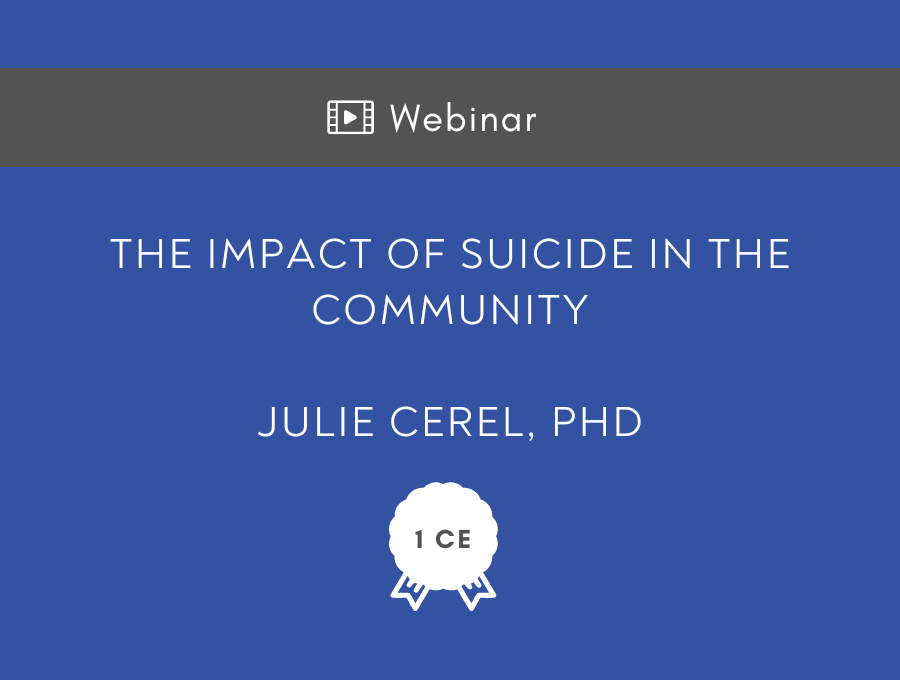
The impact of suicide in the community – 1 CE Hour
About Course
Suicide impacts families, schools, workplaces and whole communities. Over half of the American population personally knows someone who has died by suicide. Dr. Julie Cerel will describe her important evidence-based conceptualization that can help you think about the impact of each suicide along a continuum of exposure. She will also describe research related to effects of suicide in the workplace. She will discuss its impact on different professionals such as members of the military, first responders, mental health clinicians and crisis workers.Suicide impacts families, schools, workplaces and whole communities. Over half of the American population personally knows someone who has died by suicide. Dr. Julie Cerel will describe her important evidence-based conceptualization that can help you think about the impact of each suicide along a continuum of exposure. She will also describe research related to effects of suicide in the workplace. She will discuss its impact on different professionals such as members of the military, first responders, mental health clinicians and crisis workers. Webinar recorded on March 5, 2020.
Learning Objectives
- Explain the prevalence of suicide exposure in the community
- Identify how exposure to suicide impacts people overall
- Discuss the impact of occupational suicide exposure on a variety of workers
About the Presenter
Julie Cerel, PhD, is a licensed clinical psychologist and Professor in the College of Social Work at the University of Kentucky (UKCOSW). She directs the Suicide Prevention & Exposure Lab at UKCOSW and currently serves as Interim Association Dean for Research. Her research focuses on suicide exposure/bereavement and she is the author of over 80 academic publications. She is currently Past-President of the American Association of Suicidology.
Continuing Education
American Psychological Association
The Center for Prolonged Grief at Columbia School of Social Work is approved by the American Psychological Association to sponsor continuing education for psychologists. The Center for Prolonged Grief maintains responsibility for this program and its content.
Note: Many state boards recognize the APA approval. Please check with your state licensing board.
New York State Education Department
- NYSED State Board for Psychology recognizes the Center for Prolonged Grief as an approved provider of continuing education for licensed psychologists (#PSY-0150).
- NYSED Board for Social Work recognizes the Center for Prolonged as an approved provider of continuing education for licensed social workers (#SW‐0727).
- NYSED State Board for Mental Health Practitioners recognizes the Center for Prolonged Grief as an approved provider of continuing education for licensed marriage and family therapists (#MFT-0080).
Note: Non-NYS social workers, marriage and family therapists, and other professionals, please check with your state licensing board. Many states have recognized our continuing education programs as we are at a CSWE-accredited institution and part of a regionally accredited university.
Course Content
The impact of suicide in the community
-
Watch the webinar
00:00 -
Take the post-test
-
Post-webinar evaluation
00:00
About the instructors
34 Courses
346 students
8 Courses
0 students
